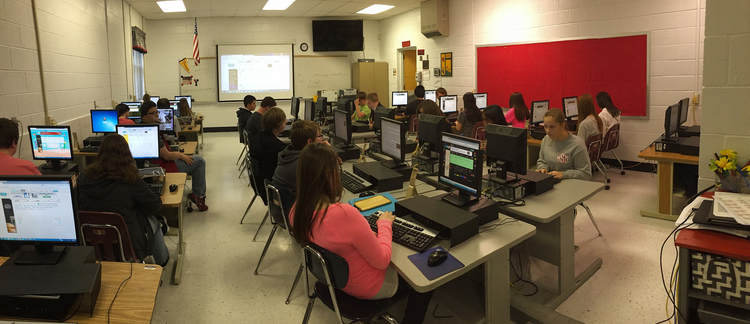EDITORIAL: A New Beginning
Gerald P. Ardito, Editor, ITLT
The ends of academic years are full of relief and promise. Relief from the work that has proceeded it, and promise in the new work that arises from rest and reflection. We end this academic year with a set of four articles that discuss important themes in learning technologies. The first article of this issue reports on research conducted by Bryan Artman into the perceptions and misconceptions in use of 1:1 laptop programs by pre-service teachers. Dr. Artman’s study shows that there are gaps between the potential benefits for high school students in from the use of 1:1 laptop initiatives, and that these potential benefits are mediated by the perceptions and misconceptions about learning technologies on the part of teachers and teacher candidates. The second article, a graduate research paper Shane Ede, investigates the role that gamification may have on student engagement through the lens of Self-Determination Theory (Ryan & Deci, 2020). This paper is an important contribution to the study of student engagement. The third article, by Betul Czerkawski, provides a detailed and useful review of digital tools that support work in the interdisciplinary field of GeoHumanities, which involves the intersection of geography, arts, and humanities. Apart from her detailed and useful review of some tools that support this work, Betul makes the case for the importance of such interdisciplinary investigations. Finally, the fourth article is a review by Jerry Yamashita of Jennifer William’s book Teach Boldly (2019), which offers suggestions on how teachers can build skills and use tools in the classroom to make change for social good.
This issue of ITLT is my inaugural issue as Editor. I am deeply appreciative of the support I have received from my predecessor, Dr. Betul Czerkawski, as well as from the former and current journal staff, especially: Nicole Schmidt, Gene Lyman, and Pamela Amendola. I very much look forward to all that comes next.
Excelsior!
References
Ryan, R. M., & Deci, E. L. (2000). Intrinsic and extrinsic motivations: Classic definitions and new directions. Contemporary Educational Psychology 25(1), 54-67. https://doi.org/10.1006/ceps.1999.1020
Williams, J. (2019). Teach boldly: Using edtech for social good. International Society for Technology in Education .

